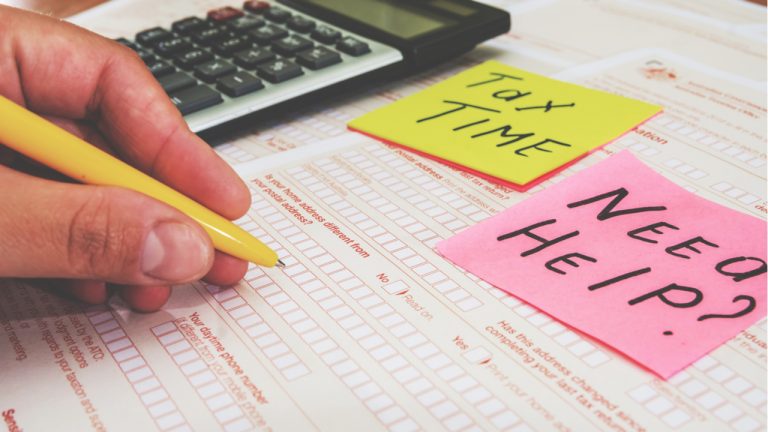2021-3-31 18:07 |
Wherever you are in the world, there’s a good chance that you’re expected to pay tax on any money you’ve made from buying and trading cryptocurrencies. You might even be surprised to find that your government wants you to pay up for hodling, staking, or even gifting coins to someone else. Tax is one of the few tools governments have for striking back at Bitcoin, so make sure you’re not caught blindsided.
The common misconception that Bitcoin is anonymous stems from the fact that transaction tracing came much later than the network itself, meaning many early adopters enjoyed stacking and trading crypto in the law’s blind spot for several years. Nowadays, expect serious implications for avoiding taxes on your crypto, even though the definition of what constitutes a taxable event may seem unreasonable or illogical to those with a basic understanding of bitcoin.
Tax season is again extended in many places this year, so make sure you take the time to understand your obligations. We will cover some of the main things you should know but please note that this is not an exhaustive list intended to cover every possible scenario. Always check with your local tax office to ensure you are fulfilling your crypto reporting duties.
There are still a lot of uncertainties about how cryptocurrencies should be regulated and many countries take an uncomfortably tough stance against them. Most exchanges adhere to KYC and AML, meaning any crypto bought from them is likely tied to a national ID such as your passport or drivers’ license. It is best to assume that the tax regulator in your country is tracking your purchases and will know if you profited over the last year.
If you simply purchased and held your crypto without making intermediary trades, you may not need to pay anything in your country but you could be expected to send a declaration nonetheless.
Crypto taxes in the United States of AmericaIf you live in the USA and have bought, sold or exchanged cryptocurrencies over the last year, you may owe short-term capital gains tax at the same rate as your usual income tax bracket. This applies to any losses or gains on crypto assets that you have held less than one year. Up to $3,000 of losses can also be deducted to lessen your tax bill, with any excess carrying over to later years.
If you have traded coins bought over a year ago, you are liable for long-term capital gains. This depends on your household income and can be 0%, 15%, or 20% of any gains your investment made.
The IRS may require you to prove which coins were sold if you sold some which were held some for over a year but continued to buy more in the interim. If you can prove the coins you sold were older than a year, you are eligible for the lower long-term capital gains rate. The IRS gives limited options to evidence this, including using “the specific unit’s unique digital identifier such as a private key, public key, and address, or by records showing the transaction information for all units of a specific virtual currency, such as Bitcoin, held in a single account, wallet, or address.”
Few exchanges provide much of this information and their transactions are often bundled together, which makes it difficult to fulfill these requirements. If you hold your own keys and sell directly through your wallet, which you can do in Trezor Suite, you can easily segregate your coins across different addresses and label transactions to make tax accounting easier.
Remember, it’s not just exchanging crypto for fiat that needs to be reported. In the US, you also need to declare if you:
Exchanged one cryptocurrency for another. This is calculated based on the dollar value of the transaction: if you bought 0.3 Ethereum bought for $40 last year and sell it for $500 worth of Bitcoin today, you realize a taxable gain of $460.Bought something for crypto directly. Since crypto is treated as property, you will usually be taxed if you use it to buy a house, car, computer or other product, based on how much you paid for the crypto and the value of the purchased product. Long and short-term capital gains apply depending on how long you held the coin before the purchase.Sold cryptocurrencies received through other means. Mined coins, airdrops, yield from DeFi products or staking rewards, and any crypto payments you have received all count as income, and the IRS will expect you to pay income tax for any address you own. With new draft legislation calling for address verification to become a must-have for crypto products, users should be aware that their addresses may be tracked. A proposal by the Financial Crimes Enforcement Network (FinCEN) for new rules regulating wallets is still seeing a strong push back from the community.Tax obligations for European crypto investorsIf you are a resident of an EU member state, you may think there’s one overarching tax framework for cryptocurrencies but that’s not the case. Each European nation has its own processes and even definitions. The recently-separated United Kingdom is currently updating its guidance, in which Bitcoin falls under the misleading category of ‘exchange tokens’, and tax must be paid even if crypto is given as a gift, under the catch-all term ‘disposal’.
It is unlikely that a Europe-wide crypto legislation will come into effect any time soon. Countries who are members of the global Financial Action task Force (FATF) are subject to its recommendations and therefore most are expected to try to enforce the Travel Rule and other mechanisms the international organization has conjured up.
What the recent string of regulations tells us about cryptocurrencies’ future
That said, for the time being there are a number of European countries who have opted to allow their citizens fair reign over their crypto assets. Germany, for example, expects no payment of long-term capital gains for funds held over a year, but net intra-year gains are taxed as income. Malta, Switzerland and Slovenia are similarly lenient on long-term investors, while Portugal and Belarus are both aiming to attract more entrepreneurs by barely taxing crypto assets at all.
This individualism could very well help push back against the all-smothering approach regulatory groups such as the FATF are proposing. It is yet to be seen how many nations will choose to subscribe to their recommendations. Countries which do, will make it much more complicated for the average person to efficiently use cryptocurrency. Those who instead embrace Bitcoin will not want to see it stifled and, we can hope, would object to any regional laws that infringe on peoples’ right to use it.
How to pay taxes on your cryptoFor anyone who trades cryptocurrencies regularly, even in small amounts, keeping track of your buys and sells can be daunting. The best way to approach it is to get an export of all transactions from any exchanges you use, and sort them in a spreadsheet. Make a habit out of maintaining this spreadsheet and it will become much easier to work out your liabilities.
Use the spreadsheet to help calculate total gains or losses over the year, and then fill out the tax form your country requires. Make sure to check if your country has specific tax processes in place for crypto, and be aware that spot trading, derivatives, staking, lending, mining, airdrops and other ways of acquiring cryptocurrencies can each be interpreted differently across jurisdictions.
In the USA, you are supposed to use Form 8949 to report crypto-related short or long-term capital gains as well as the usual capital gains form, but any income from crypto will be taxed using the additional income form, or the self employed earnings form.
In Europe and other parts of the world, you will need to check with your local tax authority if there are any steps you need to take to declare your crypto. No matter what process may exist, it will still benefit you immensely to keep track of all your transactions going forward.
Always consider that your government’s knowledge of your exchange activity is likely to be many times more detailed than their knowledge of cryptocurrencies: just because they may not have any particular form for crypto, they could still be expecting you to tax it as income or capital gains.
Do you need to pay tax on crypto? was originally published in Trezor Blog on Medium, where people are continuing the conversation by highlighting and responding to this story.
Similar to Notcoin - TapSwap on Solana Airdrops In 2024
TenX (PAY) íà Currencies.ru
|
|





















